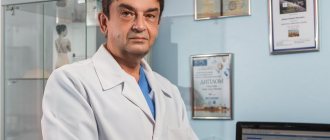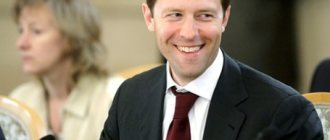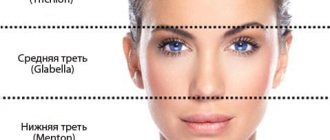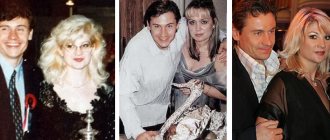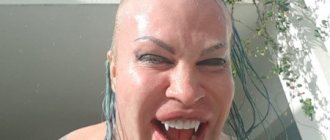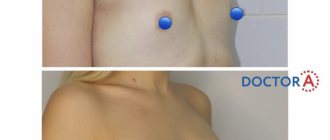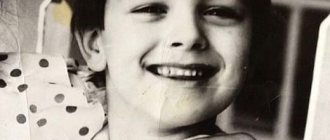Vaganova Natalia Alekseevna
Vaganova Natalia Alekseevna born 07/21/1957
- From 1975 - 1981 Voronezh State Medical Institute named after N.N. Burdenko, majoring in general medicine.
- From 1981 – 1982 internship in surgery at the surgical department of the Regional Hospital in Tambov.
- From 1982 – 1987 surgeon at the burn department of City Hospital No. 2 in Tambov.
- From 1987-1989 Clinical residency at the Russian Medical Academy of Postgraduate Education, specializing in surgery, on the basis of the Department of Reconstructive and Plastic Surgery of the Institute of Surgery named after. A.V. Vishnevsky.
- In 1989-1992 – academic postgraduate study at the Institute of Surgery named after. A.V. Vishnevsky. The main direction of research work of Vaganova N.A. was the development and introduction into medical practice of new methods of surgical treatment of post-burn and post-traumatic scar deformities using balloon stretching of tissue with expanders.
- In 1992 she defended her PhD thesis on the topic: “Surgical treatment of the consequences of cicatricial alopecia using the method of tissue stretching.”
- In 1992-2001 She worked part-time as a plastic surgeon at the Avicenna Center for Laser and Plastic Surgery. The team of this medical center, under the leadership of Professor V.M. Grishkevich (Institute of Surgery named after A.V. Vishnevsky), one of the first in the country to introduce liposuction and lipomodeling into practice. Vaganova N.A. has extensive experience in performing liposuction operations of large volumes and various locations.
- From 1993-1996 Researcher, Department of Reconstructive and Plastic Surgery, Institute of Surgery named after. A.V. Vishnevsky.
- From 1996 to present holds the position of senior researcher at the Department of Reconstructive and Plastic Surgery of the Institute of Surgery named after. A.V. Vishnevsky.
- In 2006, she defended her doctoral dissertation on the topic: “New surgical methods for treating deformities of the scalp, face and neck using balloon tissue stretching.”
- From 2007 – 2012 part-time plastic surgeon at the La Strada clinic.
- In 2008, professional retraining in “Maxillofacial surgery” at the St. Petersburg Academy of Postgraduate Education.
- From 2012 – 2014 part-time plastic surgeon at the Telos Beauty clinic.
- In 2013, she completed professional retraining in the “Plastic Surgery” program at the State Budgetary Educational Institution of Higher Professional Education RNIMUim. N.I. Pirogova and received a certificate as a plastic surgeon.
- In 2013, she completed specialized courses in laser surgery at the State Scientific Center for Laser Medicine of Roszdrav.
- In 2014, she underwent professional retraining and certification in the Oncology program at the M.F. Vladimirsky State Budgetary Institution MONIKI and received a certificate in the Oncology specialty.
- In 2014, advanced training “Current issues in maxillofacial surgery” at the Northwestern Medical University named after. I.I.Mechnikov. Received a specialist certificate: “Maxillofacial surgery”.
He has 119 scientific published works in domestic and foreign publications. Takes an active part in conferences, congresses, and international symposiums. Vaganova N.A. is a qualified surgeon, has the highest qualification category, and performs the entire range of plastic surgeries.
In 2013, she was awarded the departmental award of the Ministry of Health of the Russian Federation “Excellence in Healthcare”.
- Vaganova N.A. Dionysianism and Sophianity. Ontology and anthropology of femininity in the project of artistic religion of Vyacheslav Ivanov // Questions of Philosophy. 2022. No. 10. P. 128-139.
VAK:
- Vaganova N.A. Epistemology or mystagogy? The concept of living religion in the works of Fr. Pavel Florensky // Bulletin of PSTGU. Series I: Theology. Philosophy. Religious Studies. 2022. Issue. 75. pp. 67-78.
Articles:
- Sacred music in higher school (Arch. Sergius Bulgakov and the choir of the Paris St. Sergius Institute in the 1930s) // Ethics and culture of interpersonal relations in the educational space of the university. Materials of the scientific-practical conference at the State Medical University named after M.M. Ippolitova-Ivanov. April 2-4, 2003 M., 2003
- S.N. Bulgakov: The religious and philosophical path. International scientific conference dedicated to the 130th anniversary of his birth. March 5-7, 2001 M., Russian Way, 2003. Review // Questions of Philosophy, 2004. No. 1. P. 184-186
- Mythological ideas about wisdom and their reminiscence in the philosophical texts of S.N. Bulgakov. Manuscript. Dep. in INION RAS No. 58374
- V.S. Soloviev - S.N. Bulgakov: aesthetic aspects of sophiology. Manuscript. Dep. in INION RAS No. 58373
- S.N. Bulgakov is a Byzantine humanist of the 20th century. Sat. scientific works of the Orthodox St. Tikhon's Theological Institute. M., 2004
- S.N. Bulgakov: sophiology without Sophia. Catholic temptation and departure from sophiological themes in the Crimean period of creativity. Sat. scientific works of the Orthodox St. Tikhon's Theological Institute. 2 (18). M., 2007
- Songs and dances of evil. Metaphysics of evil in the works of D.D. Shostakovich. Philharmonic magazine No. 1. M., 2007
- Alexander Kozhev. Atheism and other works. Bulletin of PSTGU 1 (21). M., 2008
- Leibniz's theodicy and the novel by F.M. Dostoevsky "The Brothers Karamazov". XVIII Annual Theological Conference of PSTGU. T. 1. Materials. M., 2008
- A.N. Radishchev - P.A. Florensky: two journeys. Bulletin of PSTGU 3 (27). M., 2009
- “The Temple Veil” of the Bishop of Cloyne: about one Sophian motif in Joyce’s “Ulysses” and the sophiology of S.N. Bulgakov // Sophiology. M.. 2010
- S.N. Durylin and N.A. Rimsky-Korsakov. Musical and philosophical counterpoint // S.N. Durylin and his time. Book one. Research. M., 2010
- Dionysianism as Proto-Christianity in the book of Vyach. Ivanov “Dionysus and pre-Dionysianism” // Bulletin of PSTGU. 4 (32). 2010
- Sophia ontology S.N. Bulgakov. Special course. Educational and methodological materials. M., PSTGU, 2010
- Metaphysics and historiosophy of Russian musical drama. Special course. Educational and methodological materials. M., PSTGU, 2010
- “I don’t even know what we have in Russia” (worldview and philosophical origins of the interpretation of Dostoevsky’s novel “The Player” by Sergei Prokofiev) // Values and Meanings. No. 6 (15), 2011. pp. 47-64
- N. Vaganova. Le fonti platoniche della cultura russa el´ “ascetismo laico” del l´intelligencija russa // “Vechi” Pietre miliari del pensiero religioso russo 1909-2009. Atti del Simposio svoltosi a Roma, il 26 February 2009 con la partecipazione del Pontificio Istituto Orientale (Roma) e dell´ Universita ortodossodi S. Tichon (Mosca). Pontificio Istituto Orientale. Roma, 2012. pp. 75-92.
- Vaganova N.A. A.N. Radishchev - P.A. Florensky: two journeys // Philosophy, theology and science as the experience of integral knowledge. Collection of articles based on the results of the anniversary conference dedicated to P.A. Florensky (1882-1937), MSU-MDA, 2007 / Ed. O.M. Sedykh. M.: MAKS Press, 2012.
- Vaganova N.A. Kant’s transcendental ideal and Bulgakov’s sophiology // Sophiology and neopatristic synthesis: Two theological results of philosophical development / Collection of materials of the section of Russian philosophy of the International Theological Conference of PSTGU 2011. M., 2013. ISBN 978-5-7429-0816-6
- Vaganova Natal'ja. “Il cadaver della belezza” cento anni dopo // Il destino della Belezza. La Belezza nella prospettiva delle scienze umanistiche / Conferenza Internazionale. Universita San Tichon (Mosca, 17-19 April 2012) colloborazione con l´Universita Catolilica del Sacro Cuore di Milano. Bari, 2013
- Vaganova N.A. Sacrament, dogma and antinomy in the sophiology of the archpriest. S. Bulgakova // Bulletin of PSTGU. Series I. Theology. Philosophy. I:4 (48). M., 2013. pp. 40 – 51. ISBN 978-5-7429-0852-4
- Vaganova N. “The Corpse of Beauty” a century later // Chrześcijaństwo a współczesne koncepcje człowieka / Pod red. Lucjana Suchanka. – Krakow: Polska Akademia Umiejętności, 2013. S. 163-171.
- Natal'ja Vaganova. Ikonenmalerei in der Krise? // Religion und Gesellschaft in Ost und West 41, 3 (2013). S. 17-19
- Vaganova N.A. “Will these bones come to life?”, or Who is grabbing whom... [Electronic resource] https://www.bogoslov.ru/text/3197959.html
- Vaganova Natalia. “The only pity is that his philosophical letters are addressed to the Lady”… Letters to a Lady as a philosophical genre // Peter Chaadaev: between the love of fatherland and the love of truth. Book of abstracts / International Conference Krakow Meetings. June 5-6 2016. Krakow. 2016. S. 73.
- Vaganova Natalia. Between image and enigma. On philosophical meanings of “art history” of E. Trubetskoy and others // Evgenii Trubetskoi. Icon and Philosophy/Ed. by Teresa Obolevitch and Randall A. Poole. Washington: Wipf and Stock Publishers, 2022, pp. 173–180.
Scientific and methodological
- Vaganova N.A. Sophia ontology S.N. Bulgakov. Special course. Educational and methodological materials. M., PSTGU, 2010
- Vaganova N.A. Metaphysics and historiosophy of Russian musical drama. Special course. Educational and methodological materials. M., PSTGU, 2010
- Vaganova N.A. Sofia in exile (Fr. Sergius Bulgakov: emigration and return to sophiology) // Bulletin of OSU. No. 2 (58), 2014. pp. 118-123. ISSN 1998-2720
- Vaganova N.A. The will to Sophia and churchliness in the works of Fr. Pavel Florensky // Bulletin of PSTGU. No. 5 (55), 2014. pp. 81-91. ISBN 978-5-7429-0922-4
Articles in collections:
- Vaganova N.A. A. N. Schmidt as Sophian esotericism in the book “The Pillar and Statement of Truth” by Fr. Pavel Florensky // “Philosophizing in Religion.” Collection of materials from the conference dedicated to the centenary of the publication of the book “The Pillar and Ground of Truth” by Fr. Pavel Florensky. PSTGU, 2014. M., 2022. P. 75-94. ISBN 978-5-7429-1084-8.
- Vaganova N.A. On the peculiarities of contrasting the sophiology of V.S. Solovyov and S.N. Bulgakov in the reception and criticism of E.N. Trubetskoy // Russian Logos: horizons of comprehension. Proceedings of the international scientific conference. In 2 volumes. T.1. Classical Russian philosophical tradition. St. Petersburg, 2022. pp. 99-104. ISBN 978-5-88812-856-5
- Vaganova N.A. Gnostic mystification, futuristic trace and symbolist context in “Earthly and Above Sophia” by L.P. Karsavina // MEANING – MEANING – SYMBOL – II. Theology, philosophy and aesthetics at the turn of the century. Proceedings of the scientific conference September 26-28, 2022 Mtskheta, Georgia. pp. 49-51. ISBN 978-5-1909-8
- Vaganova N.A. Images of icons of Sophia the Wisdom of God in the book of Father Pavel Florensky “The Pillar and Ground of Truth”: sources and their current state // VIII International Conference CURRENT PROBLEMS OF THEORY AND HISTORY OF ART. Abstracts of reports. Moscow October 2–6, 2022 M., 2918. P. 293-296/
- Vaganova N.A. The concept of telimonotheism of Vyacheslav Ivanov and the religious mystery of the future // Vyacheslav Ivanov. Research and materials. Vol. 3. / Comp. S. V. Fedotova, A. B. Shishkin. M.: IMLI, 2018. pp. 136-143.
- Vaganova N.A. Images of icons of Sophia the Wisdom of God in the book of Fr. Pavel Florensky “The Pillar and Ground of Truth”: sources and their current state // Collection of proceedings of the VIII scientific conference “Novgorod and Novgorod land. Art and restoration". Veliky Novgorod, 2022. pp. 37-54.
- Vaganova N.A. Kant's transcendental ideal and Bulgakov's sophiology // Sergei Nikolaevich Bulgakov / pod. ed. A.P. Kozyreva - M.; Political encyclopedia. 2022 (Philosophy of Russia in the first half of the twentieth century). M., 2022. pp. 46-67.
- Vaganova N.A. Dogma and antinomy in the philosophy of S.N. Bulgakova // Sergei Nikolaevich Bulgakov / under. ed. A.P. Kozyreva - M.; Political encyclopedia. 2022 (Philosophy of Russia in the first half of the twentieth century). M., 2022. pp. 290-304.
Publications
- Vaganova N.A. Apocalypticism and theurgy in Russian religious and philosophical thought on the eve of 1917 // N. Tolstoy and F.M. Dostoevsky: the tasks of Christianity and Christianity as a task. International scientific conference. October 2-5, 2011. Tula: Museum-Estate of L.N. Tolstoy “Yasnaya Polyana”, 2014. pp. 247-281.
- Vaganova N.A. Sofia in exile (Fr. Sergius Bulgakov: emigration and return to sophiology) // Bulletin of OSU. No. 2 (58), 2014. pp. 118-123. ISSN 1998-2720
- Vaganova N.A. The will to Sophia and churchliness in the works of Fr. Pavel Florensky // Bulletin of PSTGU. No. 5 (55), 2014. pp. 81-91. ISBN 978-5-7429-0922-4
- Vaganova N.A., Filippov A.A. Riddles of Sergei Prokofiev // Art education and science. 2015. No. 4. P. 130-135.
- Vaganova N.A., Filippov A.A. Songs and dances of evil: the metaphysics of evil in the works of D. D. Shostakovich // Art education and science. 2015. No. 1. P. 117-121
- Vaganova N.A. Ideas about the genesis of myth in Solovyov’s early works. Myth as theogony // Bulletin of PSTGU. No. 2. 2016. pp. 55-72.
- Vaganova N.A. Epistemology or mystagogy? The concept of living religion in the works of Fr. Pavel Florensky // Bulletin of PSTGU. Series I: Theology. Philosophy. Religious Studies. 2022. Issue. 75. pp. 67-78.
- Vaganova Natalia. Russian Sophiology and the Problem of the Subject in Modern Philosophy // Beyond Modernity. Russian Religious Philosophy and Post-Secularism. Ed. by Artur Mrowczynski-Van Allen, Teresa Obolevitch, Pawel Rojek. Washington, WipfandStockPublishers, 2016. P. 86-97.
- Vaganova Natalya. “It’s just a pity that his philosophical letters are addressed to a lady...” Letters to a lady as a philosophical genre // Logosiethos. Numerspesjalny. 2016 (43). S. 197-212.
- Vaganova N.A. A. N. Schmidt as Sophian esotericism in the book “The Pillar and Statement of Truth” by Fr. Pavel Florensky // “Philosophizing in Religion.” Collection of materials from the conference dedicated to the centenary of the publication of the book “The Pillar and Ground of Truth” by Fr. Pavel Florensky. PSTGU, 2014. M., 2022. P. 75-94. ISBN 978-5-7429-1084-8.
- Vaganova N.A. On the peculiarities of contrasting the sophiology of V.S. Solovyov and S.N. Bulgakov in the reception and criticism of E.N. Trubetskoy // Russian Logos: horizons of comprehension. Proceedings of the international scientific conference. In 2 volumes. T.1. Classical Russian philosophical tradition. St. Petersburg, 2022. pp. 99-104. ISBN 978-5-88812-856-5
Finding your face: how the minister's wife is reforming plastic surgery
The wife of the Minister of Industry and Trade, Natalya Manturova, created a successful business in plastic surgery. Now she is trying to reform the entire industry, which may bring additional billions of rubles to the market
Wife of the Minister of Industry and Trade Natalya Manturova (Photo: Alexey Filippov/RIA Novosti)
Private Nikolai Yegorkin was operated on for 18 hours, restoring his face after a serious injury he received in 2012 while serving in one of the missile units of the Primorsky Territory. By order of the commander, he tried to remove the live wire from the pole. The result was amputation of the nose, deformation of the right half of the face and neck, defects in the bones of the skull, and the right arm and leg were also damaged. Egorkin underwent about 30 reconstructive operations, but it was not possible to restore his appearance, and the patient fell into depression. The doctors supervising the soldier decided that he needed a face transplant, despite the fact that such operations had never been performed in Russia before.
Such a complex operation was opposed by such prominent specialists as Academician Nikolai Milanov, President of the Russian Society of Plastic, Reconstructive and Aesthetic Surgeons (ROPRECH), and the head of the Center for Reconstructive Surgery of the Face and Neck (TsNIISiChLH) Alexander Nerobeev. Nerobeev said that for recovery, you can use the tissues of the soldier himself, and not resort to a transplant, after which, in order to avoid rejection, the young man will be forced to take immunosuppressants, which can seriously shorten his life.
But in November 2015, the country's first face transplant was still performed at the Military Medical Academy in St. Petersburg. The Ministry of Health called its results successful, and the doctors received the prestigious Vocation award. And yet, experts are still wary of the operation, criticizing the fact that the opinion of part of the plastic surgery community was ignored.
According to three interlocutors of RBC magazine, familiar with the details of the approval of the operation, it was possible to resist the opinion of eminent specialists and obtain permission from the Ministry of Health for the experimental operation thanks to the support of Natalya Manturova. “For Manturova, this is a reputational story,” says an RBC interlocutor close to the leadership of the Ministry of Health. Why does her support matter so much?
Natalya Manturova is a certified physician, a freelance plastic surgery specialist at the Ministry of Health, the founder of a business in the field of aesthetic medicine worth hundreds of millions of rubles, and the wife of the head of the Ministry of Industry and Trade. She is also the main lobbyist for the interests of plastic surgery in the country, who managed to carry out many reforms that no one could implement for many years.
Manturova’s desire to single-handedly manage the industry causes a muted murmur of dissatisfaction from many of her colleagues, most of whom do not dare to criticize her openly. RBC magazine figured out what the essence of reforms in a market worth billions of rubles is, what changes await it and how all participants, including Natalya Manturova herself, will benefit from them.
From Bombay with love
Natalya Manturova is not a random person in plastic surgery. She is a graduate of the Russian National Research Medical University named after N.I. Pirogova, Doctor of Science, head of the department of plastic and reconstructive surgery, cosmetology and cellular technologies in her native Second Medical Center.
Her father Evgeny Kisel worked as a representative of Aeroflot in India and Sri Lanka. Natalya met her future husband Denis Manturov as a child: his father Valentin Manturov was the director of the Soviet cultural center, says Kirill Pshenisnov, national secretary of the International Society of Aesthetic and Plastic Surgeons (ISAPS).
In 1999, Manturova entered the private medical business, founding the Lancet plastic surgery clinic, but only ten years later began actively making changes in this area.
Until 2009, plastic surgery as a specialty did not formally exist in Russia. Academician Milanov fought for its inclusion in the nomenclature list in the healthcare sector for many years, but his efforts were crowned with success only in April 2009, when the corresponding order of the Ministry of Health was issued. Manturova at that time was the chairman of the ethics committee of ROPREKH headed by Milanov.
In July of the same year, the Ministry of Health prescribed qualification requirements for doctors: a two-year residency for graduates of medical institutes in the specialties of general medicine, pediatrics or dentistry, or professional training if the applicant for the title of plastic surgeon has at least five years of experience in surgery , urology, traumatology or other fields.
The orders of the Ministry of Health appeared due to the fact that Manturova personally communicated with Tatyana Golikova, who headed the department, Pshenisnov is sure. Manturova also has a good relationship with her successor Veronica Skvortsova, says an RBC interlocutor close to the leadership of the ministry, and confirms a source in the industry. The Ministry of Health did not respond to RBC's request.
The system adopted in 2009 made it possible to legalize already proven specialists - in the industry it was called “grandfather’s amnesty.” But as a result, medical universities began to actively make money from retraining courses, issuing certificates to almost everyone who simply paid for the training. “Some institutions are leaders in the speed of issuing diplomas. We couldn’t do anything about this, so the decision was made to close retraining in plastic surgery,” admitted Milanov, speaking in December 2013 at the III National Congress on Plastic Surgery. The academician did not have time to correct the situation: he died in February 2014. The academician was the first freelance specialist in plastic surgery at the Ministry of Health; after his death, Manturova took over the post, continuing Milanov’s work.
The position “freelance specialist” appeared in October 2012. The ministry’s regulations note that 79 such specialists are involved in determining the development strategy for their branches of medicine, and also “study and disseminate new medical technologies.” Formally, freelancers only have an advisory voice. On the other hand, this position allows you to “open certain doors” in the Ministry of Health, says Astamur Karchaa, a plastic surgeon at the Beauty Institute on Arbat.
Grand plans
In September 2015, Manturova revived the specialized commission under the Ministry of Health, which last met under Milanov. For the department, the meeting is not only an opportunity to hear the voice of the industry: the commission should prepare proposals for reforming plastic surgery, said First Deputy Minister of Health Igor Kagramanyan. The commission meets several times a year. There is virtually no discussion on key issues, since Manturova’s proposals receive full support, say two RBC interlocutors who participated in the meetings.
At the first meeting, Manturova spoke about how she sees reforming the industry. The key transformation is the tightening of the rules for admission to the profession. At Manturova’s initiative, retraining courses were abolished, and since January 2016, a certificate can be obtained only after completing residency. In the future, the training period may increase to 3–3.5 years, a freelance specialist said in June 2016. “These changes make it possible to remove people from the specialty who have nothing to do with it and form a full-fledged school, because in surgery schools have always been localized around departments,” explains Karchaa.
In addition, like all doctors in Russia, plastic surgeons must undergo accreditation every five years. All industry specialists must be re-examined by 2022. At the September meeting it was said that the accreditation commission would include representatives of the professional community, universities and clinics where the specialist works. They will evaluate the surgeon's portfolio, test results and practical skills. The main questions are what this process will look like and what the evaluation criteria will be. There was no “mass discussion” of the details, says ROPREKH President Konstantin Lipsky.
It is unknown how many doctors will be able to continue practicing after certification. Karchaa believes that up to a third of specialists will leave the market; a freelance specialist at the Department of Health for the Southern District of Moscow, Alexey Gvaramiya, puts the figure at 60%; and the head of the department of microsurgery and hand trauma at CITO, Igor Golubev, puts it at up to 98%.
“If foreigners come and conduct a serious certification exam according to European or American standards, then maybe 98% will not pass. If certification is carried out without the involvement of incorruptible professionals, then it is obvious that in Russia it will always be possible to reach an agreement, says Pshenisnov. “But in general, looking at the path traveled since 2009, I think that in our country a significant part of plastic surgeons in practice work well.”
Manturova also intends to deal with foreign specialists. “Now many surgeons come from neighboring countries, perform operations in Moscow, and then, unfortunately, leave. Moscow doctors have to be responsible for the results and correct possible complications,” she said in 2014, without specifying how many surgeons she was talking about. The Vademecum analytical center counted no more than ten specialists who studied abroad.
Manturova did not say what measures should be taken in this regard, noting only that the issue is being studied. Already now, in order to start operating in Russia, surgeons must first confirm documents about their foreign education, and then pass an exam, after which Roszdravnadzor issues a specialist certificate. Without this document, you can only conduct consultations.
But the procedure does not completely save you from charlatans. In 2008, surgeon Elchin Mamedov operated at Manturova’s own Lancet clinic. He is remembered, however, for his work at the Central Clinical Hospital No. 2 named after N.A. Semashko, where he got a job using forged documents. One patient fell into a coma as a result of Mamedov’s actions, another could not walk for a long time after liposuction of her thighs, and in a third, during breast correction surgery, the doctor forgot a napkin in her chest. Mamedov was put on the wanted list and charged in absentia, but he managed to avoid meeting with investigators.
Finally, Manturova plans to collect statistical information on clinics, says Gvaramia. This proposal has been approved, and freelance specialists from the Ministry of Health, who are located in every federal district, are already implementing it. The Federal Scientific Center, organized on the basis of the Manturova Department at the Pirogov Russian National Research Medical University, will aggregate and analyze the data. However, so far the collection of statistics is going poorly. “I do not have the legal power to demand [to provide data], I can ask for it, and they can send me. Two or three clinics responded to me, but the rest did not,” Gvaramia complains.
Italian version
Despite the crisis, the plastic surgery market is doing well. According to the Vademecum analytical center, in 2015, 156.6 thousand operations worth 12.6 billion rubles were performed in Russia. Manturova mentioned almost the same figure in an interview with RNS - 12.7 billion rubles, or 6% of all paid medical services in the country. The most popular operation is breast augmentation (17% of the total number of procedures). But market growth in monetary terms is slowing down: if in 2014 it was 15%, then in 2015 it was only 4%.
159 plastic surgery clinics operated in Moscow in 2015
52 thousand plastic surgeries were performed in Moscow in 2015
Sources: Vademecum
It is more difficult to understand how many plastic surgeons there are in Russia - there is no single register. In 2010–2011, ISAPS believed that there were 500 specialists in Russia; since 2013, it has indicated the figure of 2000 in its reports. In March 2016, Manturova, in a conversation with Financial Gazeta, spoke about 963 doctors. According to Vademecum, there are currently 1,352 certified specialists practicing in Russia, of which 488 are in Moscow.
“The world of aesthetic surgery has always been specific because of its closed nature,” says Karchaa. “Getting into the profession without the necessary connections used to be very problematic.” Retraining courses and residency changed everything and now the market is “oversaturated with specialists,” the surgeon is sure. “They find use in small private clinics, but often do anything other than surgery itself in its purest form, for example, cosmetology - hardware, injection, whatever,” explains Karchaa. — This is not bad, because residency provides relevant skills and knowledge in this area as well. On the other hand, as in many other specialties, when a graduate specialist has nowhere to find a job, a slight collapse of the specialty occurs.”
Future plastic surgeons are attracted to this profession not only by decent earnings, but also by a fairly flexible schedule: few people work from sunrise to sunset, surgeons say. Karchaa says that previously they had to operate four to five times a week, but now, due to the crisis, it happens that the operating room is idle for weeks. Surgeon Danila Kuzin says that on average 25–30 people go under the knife per month, and he consults 60–70 patients during the same time. The number of procedures is also affected by seasonality: significantly fewer operations are performed in the summer.
After the closure of retraining courses, the number of specialists stopped growing exponentially, but there are still a lot of doctors on the market: universities now make money from residents, accepting several dozen of them and sometimes even without approval from the departments. Two years of training will cost 400 thousand rubles. (for comparison, four months of courses cost an average of 100 thousand rubles).
“We have some kind of Italian version: the internal competition is so strong that it is not profitable for the mentor to teach his opponent, so often the resident graduates without knowing the basics, for example, how to stitch up the skin after surgery,” Pshenisnov is surprised.
There are two main centers for plastic surgery in Moscow - the Institute of Beauty on Arbat and the Institute of Plastic Surgery and Cosmetology (IPhiK), which reopened in October 2015 after reconstruction, which lasted for several years. Historically, the strongest schools are also in St. Petersburg, Krasnoyarsk, and Yekaterinburg, explains Karchaa.
Small clinics survive in this market in two ways, say surgeons interviewed by RBC. The first way is word of mouth, which provides a well-known specialist with a stable flow of clients. The second is dumping: for example, on the Internet you can find offers to enlarge your breasts for 140 thousand rubles, although usually this operation costs at least twice as much. Clients of such clinics often come back later for alterations, Pshenisnov complains.
For large institutions, the effect of word of mouth is not decisive: at the expense of one or even several doctors, it is impossible to maintain revenue and the number of operations at the same level. A recognized market leader in the number of operations, the Center for Cosmetology and Plastic Surgery in Yekaterinburg performed more than 7 thousand operations in 2014, and only 5.4 thousand in 2015, according to the Vademecum review.
In 2015, Russia held
26.2 thousand breast augmentation operations
25.5 thousand plastic surgeries of the century
21.2 thousand nose plastic
3.7 thousand breast reduction operations
Sources: Vademecum
A study by Vademecum, made at the request of RBC magazine, indicates that in the fall and winter of 2015, no more than 300–400 plastic surgeries were performed at the IPC. The head of the plastic surgery department at the institute, Anton Zakharov, says that after the end of the reconstruction and until September 2016, 1,142 operations were performed at the institution. The clinic is just reaching the expected levels, and it is expected that the number of operations will increase by about 2.5 times, explains Zakharov. This and a number of other clinics are associated with the main reformer of the industry.
Departure to Gelendzhik
Natalya Manturova has built a successful and fairly large business in the field of medicine. According to RBC magazine, in 2015 the total revenue of several clinics, a medical equipment manufacturing company and two sanatoriums, the connection of which with Manturova can be traced, amounted to 585 million rubles.
Manturova is the sole founder of the Moscow Foundation for the Development of Medical Technologies, which in turn owns the Institute of Plastic Surgery and Cosmetology, according to SPARK-Interfax. The response from Manturova’s representative to RBC’s request states that the freelance specialist “does not have any property rights in relation to the fund she created.” The very fact of ownership of the institute is completely denied by the representative of the minister’s wife.
The institute is located in a seven-story building on Olkhovskaya Street and is equipped with the latest technology: for example, the building has its own laboratory and intensive care unit. The reports of the Federal Property Management Agency indicate that IPHiK was sold by the state in 2012 for 407.2 million rubles. (not related to Manturova). It is unknown how and under what conditions the institute was acquired by the foundation. The President of the Foundation for the Development of Medical Technologies is Evgeniy Kisel (also the name of Natalya Manturova’s father). The institution is headed by Yuri Grib, the former chief physician of the Centromed clinic, subordinate to the Ministry of Industry and Trade.
The Ministry of Health website states that the fund is promoting “high-tech products produced by Armis” on the Russian market. “Armis” is a device that records human physiological parameters; it is produced by Rostov, which is 85% owned by the foundation. The largest client turned out to be the Ministry of Health of Tatarstan, which purchased devices worth 73 million rubles without competition, as follows from the documentation posted on the government procurement portal.
The Lancet clinic, opened by Manturova in 1999, operated on the basis of Clinical Hospital No. 1 of the Presidential Administration, and the services provided largely duplicated the current list of services of the institute on Olkhovka. Lancet was closed in mid-2015.
The legal entity to which the institution was registered, LLC Center for Plastic and Endoscopic Surgery, was not liquidated. According to SPARK-Interfax, Manturova owned the company from October 2006 to December 2015, after which the clinic passed to Evgeny Maksimov, the full namesake of a former colleague of the head of the Ministry of Industry and Trade: as Vedomosti wrote, Maksimov worked together in the late 1990s with Manturov at the Ulan-Ude Aviation Plant. Manturova’s representative refused to comment on the conditions under which the clinic was transferred to Maksimov.
The clinic of hardware and injection cosmetology “Lancet”, owned by Manturova, was closed for reconstruction and opened only in early October. They do not perform surgeries there, only cosmetic services: for example, laser facial resurfacing and radiofrequency therapy.
Manturova’s business interests are also connected with Gelendzhik, where the Primorye boarding house is located, which specializes in cosmetology and plastic surgery, as well as postoperative rehabilitation. From the materials of the arbitration cases, it follows that the boarding house belongs to PJSC Boarding House Primorye, whose board of directors, according to SPARK-Iterfax, included Natalya Manturova. Services on the boarding house website - from endoscopic facial rejuvenation to intimate plastic surgery - are announced by Manturova herself.
According to Vademecum, the complex, which expanded the territory at the expense of the neighboring Druzhba sanatorium, should become a branch of the institute on Olkhovka. The investment amount will be 1.88 billion rubles, of which 1 billion rubles. Primorye will take it on credit. Appointments at the cosmetology center of the sanatorium were previously conducted by specialists from Lancet, according to the clinic’s website.
Now doctors from the Institute of Chemical and Clinical Medicine do not officially conduct consultations in Gelendzhik under the guise of the institute, say Deputy General Director of the Institute of Chemical and Clinical Culture Valentin Sharobaro and Anton Zakharov, noting that surgeons can do this in their free time.
The boarding house “Primorye” is managed by the same Maximov, as stated in Rosstat data. In turn, the owners of this company in equal shares are two Cypriot offshore companies - Questoil Limited and Guylen Investments Limited. An extract from the local register of legal entities indicates that the second offshore is owned by Valentin Manturov (the same name as the father of the head of the Ministry of Industry and Trade), and Evgeny Maksimov is listed among the company’s leaders.
One of the co-owners of PJSC Sanatorium Gelendzhik is (via). According to Vademecum, this sanatorium will also be refurbished, the investment amount will be 449.6 million rubles.
Manturova did not confirm that the sanatoriums were related to her: in a conversation with RNS, she stated that “she does not have information about construction projects of any complexes.” She did not answer the same question from RBC magazine.
Several officials of the Ministry of Industry and Trade, with whom RBC spoke, were surprised to learn that the wife of the head of the department is engaged in business and does not lead an idle lifestyle: Manturova tries not to advertise her successes.
State money
“A stable income in any area of business in this country is obtained only if the money comes from the state,” Karchaa smiles. In a changing market, large clinics have several possible sources of income that have not yet been exploited.
The first possibility is to include some plastic surgery operations in the compulsory health insurance (CHI) system. In May 2016, Manturova announced this for the first time, noting that this could be done in the next one and a half to two years. This is not about aesthetic, but about reconstructive medicine, and in this sense, Manturova’s initiative is approved by all the doctors interviewed by RBC. But many consider these deadlines to be not entirely realistic. There is a feeling that everything is being done in a hurry, says Karchaa. In such a time, it is possible to carry out reform only if there is a “willful decision,” Gvaramia is sure.
The final list of operations that will be included in the compulsory medical insurance system has not been determined, and the benefits to the industry cannot be calculated. It is safe to say that the list of procedures will include breast reconstruction after mastectomy for breast cancer. In total, about 2.7 thousand such operations were performed in Russia in 2015, and about 440 in Moscow, Vademecum calculated.
The Moscow tariff agreement states that 126.6 thousand rubles are allocated for breast reconstruction. Such operations are now performed by oncologists, but if Manturova’s initiative is consolidated at the level of the Ministry of Health, they will have to make room.
In 2015, according to the Ministry of Health, breast cancer was detected in 66.6 thousand patients, and on average since 2005, almost 57 thousand new cases have been detected, of which approximately two-thirds undergo breast removal surgery every year. If we take the capital’s compulsory medical insurance rate, we are talking about a market of 5.6 billion rubles.
Only 6% had breast reconstruction surgery in the past year. In the US, this figure is 20%, says Pshenisnov. Once the American figure is reached, the Russian market for breast reconstruction services will be slightly more than 1.1 billion rubles. According to calculations by RBC magazine, patient costs for this type of operation now amount to almost 342 million rubles. Vademecum gives a similar estimate - about 400 million rubles, that is, inclusion in the compulsory medical insurance system can approximately triple this market for plastic surgeons.
Manturova's representative, in a written response to a request from RBC magazine, indicated that in February 2014, market saturation was 28%, and annual growth was expected at 7–12%. Based on these estimates, the market will grow for at least another three years. With the inclusion of plastic surgery in compulsory medical insurance, the potential for growth only increases.
Another procedure that may be covered by insurance is eyelid correction. There are no separate statistics for this type of procedure. Vademecum’s data combines both reconstructive and aesthetic operations: in total, about 25.5 thousand were performed in 2015, amounting to 1.1 billion rubles.
Another major source of potential income for plastic surgeons is high-tech medical care (HTMC), or complex technologies that are used to treat serious diseases. From January 1, 2022, a simplified financing scheme for organizations providing medical care will come into force. Now private clinics will also be able to receive funds for such assistance. The Ministry of Health is currently developing criteria for inclusion in the relevant list.
In June, Manturova said that plastic surgery clinics would be actively included in the VMP program. The budget of the Federal Compulsory Medical Insurance Fund for 2016 provides 96.4 billion rubles for high-tech medical care, the organization’s chairman, Natalya Stadchenko, said in June at the Federation Council. In 2022, this figure may increase to 101 billion rubles.
The Ministry of Health did not respond to a request for information about how private clinics will receive quotas for the provision of primary care. According to calculations by RBC magazine, operations that could be performed in plastic surgery clinics account for approximately 5% of the structure of all allocations for VMP. Thus, in 2022 we can talk about an additional 5 billion rubles.
Vertical of power
“Surgeons are very ambitious, self-centered and think mostly only about themselves, and plastic surgeons probably have all this squared away. But then a man appeared who was able to unite them,” explains plastic surgeon Kuzin. “Manturova is purposeful: she rallied people around her who had previously tried to work separately, stretching the blanket in completely different directions.”
Manturova’s achievements in protecting the interests of the industry are recognized by all the interviewed surgeons, even those who do not like her for various reasons: she integrates “plastics” into the structure of medicine, fights charlatans and defends specialized education. And she does it a little more systematically than her predecessors, adds Sharobaro: “She is a person of enormous energy.”
But Manturova is the sole initiator of all reforms, and this causes deep disagreement from some of her colleagues. “Unfortunately, the opinion of professionals today is not so important, what is more important is the opportunity to reach an agreement, so, of course, it is the main engine of everything. The direction of its reforms is generally correct, but one person cannot determine all development paths for the industry,” says Pshenisnov from ISAPS. Manturova, in his opinion, has “a huge administrative resource - the ability to directly communicate with people who are inaccessible even to recognized specialists.”
RBC's interlocutor, close to the leadership of the Ministry of Health, agrees with him: according to him, Manturova can independently convey her position to the country's leadership and members of the government. That is why the freelance specialist was able to carry out in a few years the reforms that her predecessors had fought for for decades. The source recalls that he once discussed with Manturova an issue that required permission from the Ministry of Health: Natalya then literally brushed aside doubts that receiving this paper might take a long time, and assured her interlocutor that she could solve this problem extremely quickly.
RBC's interlocutors explain Manturova's motivation for taking up reforming the industry in different ways. Pshenisnov talks about “a sense of responsibility for plastic surgery” and that Manturova may be driven by the desire “to be on the same level as her husband.” Two more RBC industry interlocutors note that the reforms carried out by a freelance specialist will help its business.
“Introducing a specialty, transferring to compulsory medical insurance - you are, in principle, doing a good deed,” Gvaramia grins. “Let’s call it a mark in history.”
“All reforms are going in the right direction, but without democracy,” RBC’s interlocutor in the Ministry of Health says about Manturova’s activities. “Maybe it’s right that after all the revolutionary transformations such a rigid vertical of power is being built.”
